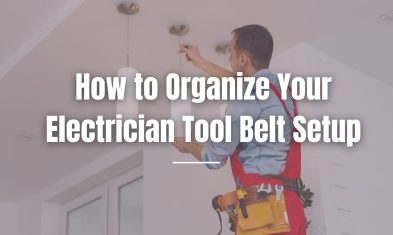The HVAC industry is growing fast—and competition is heating up. New technologies, stricter environmental regulations, and rising customer expectations mean that HVAC certification isn’t optional anymore—it’s essential.
Whether you’re just starting or running an established company, having certified technicians gives you:
- Instant customer trust
- The ability to charge higher rates
- An edge over less-qualified competitors
In this guide, you’ll discover:
- The top types of HVAC certification
- How to get certified quickly
- Costs and ROI of certification
- 2025 refrigerant rule changes
- How to keep certifications current and market them
What Is HVAC Certification?
Think of HVAC certification like a driver’s license for heating and cooling work—it proves your team can safely and correctly handle HVACR systems.
Some certifications cover basic skills, while others specialize in advanced areas like new refrigerants or energy-efficient systems. The ones you choose depend on your services and your customers’ needs.
Industry Growth Alert: HVACR jobs are projected to grow 9% from 2023-2033, much faster than the average for all occupations.
Types of HVAC Certifications
1. EPA Certification (Required By Law)
Every HVAC technician needs EPA certification to work with refrigerants. This isn’t optional—it’s the law. The EPA offers four types of certification:
- Type I: Small appliances (window units)
- Type II: High-pressure systems (central air)
- Type III: Low-pressure systems (chillers)
- Universal: Covers all equipment (most common choice)
Cost: $25-$200 | Expires: Never
2. NATE Certification
NATE (North American Technician Excellence) is the gold standard in HVAC credentials. Tests real-world skills, not just theory.
Specialties include:
- Air conditioning
- Heat pumps
- Gas heating
- Oil heating
- Installation
Cost: $100-$300 | Expires: Every 2 years
3. HVAC Excellence Certification
- Professional Level: Pass 4 tests
- Master Level: Pass 11 tests
The HVAC Excellence Certification is ideal for techs who want to prove they’re top-tier experts.
4. Manufacturer Certifications
Many equipment makers like Carrier, Trane and Lennox offer their own certifications. These show that your technicians know how to install and service specific brands. Manufacturer certifications often come with perks like:
- Better warranty terms
- Priority tech support
- Special pricing
- First access to new products
Why HVAC Certification Boosts Your Business
- Higher Pay for Your Team: Certified techs earn 15-25% more than uncertified.
- Stronger Customer Trust: Certification equals peace of mind for expensive installs and repairs.
- Competitive Advantage: Many small HVAC companies skip certification—don’t be one of them.
- Legal Compliance: Avoid fines, speed up permits and pass inspections with ease.
How to Get Your Team Certified (Fast)
- Start with EPA Universal Certification: It’s required for refrigerant handling.
- Add NATE in Your Core Service Areas: Focus on what you do most.
- Use Manufacturer Training: Especially if you install a lot of one brand.
- Choose a Training Provider: Trade schools, online programs or industry associations.
- Prep and Schedule Exams Early: Popular testing slots fill up fast.
Cost vs. ROI
- Costs: $10–$300 per certification (+ training)
- ROI: Higher rates, more jobs, fewer callbacks and eligibility for warranty work. Most companies see their investment pay for itself quickly.
2025 Refrigerant Changes—Act Now
Starting January 1, 2025, all new residential ACs and heat pumps must use A2L refrigerants. Manufacturers already require special certification to handle them. Get certified now so you’re ready before competitors.
Maintaining HVAC Certification
- Track Renewal Dates: EPA (never), NATE (2 yrs), HVAC Excellence (5 yrs), Manufacturer (varies)
- Complete Continuing Education: Many manufacturers offer free classes.
- Store Proof in the Cloud: Quick access for customers, inspectors, and insurers.
Turn Certification into a Sales Tool
- Put logos on trucks, uniforms, website, and invoices.
- Train your sales team to mention certifications during every pitch.
- Use phrases like:
- “EPA & NATE certified technicians”
- “Factory-trained on all major brands”
- “Certified to work with eco-friendly refrigerants”
Want to save money and time? Schedule a personalized FieldEdge demo today!
Earn Trust and Boost Business With HVAC Certifications
HVAC certification isn’t just a credential—it’s a business growth engine. In a fast-changing industry, the companies that keep their teams certified will earn more, win more jobs and keep customers for life.
Related: Breakdown of HVAC School Cost




